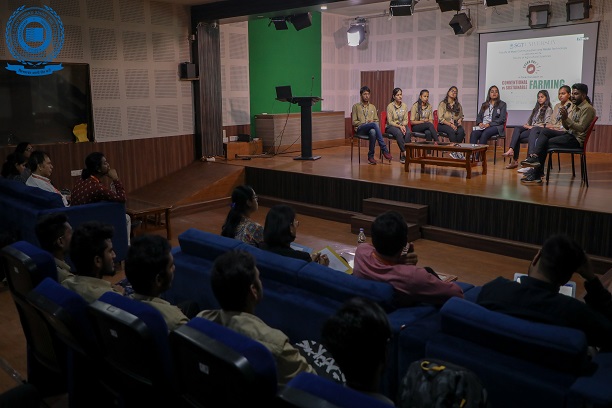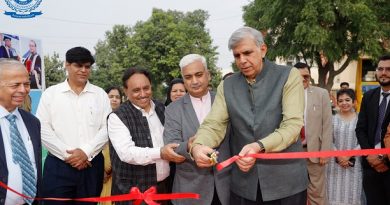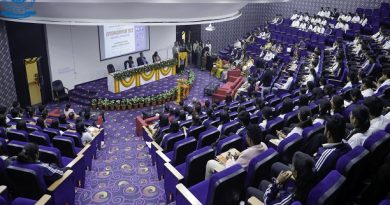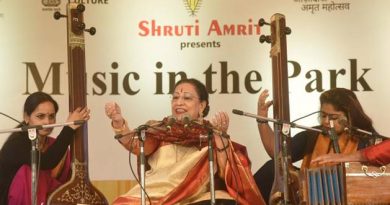The Faculty of Mass Communication and Media Technology organized a Panel Discussion on the theme‘’Convention vs. Sustainable Farming’’.
The Faculty of Mass Communication and Media Technology, in collaboration with the Faculty of Agricultural Sciences, organized a Panel Discussion on the theme‘’Convention vs. Sustainable Farming’’ as part of the in-house established Speak-Out Society’s initiative. Miss. Uttkarsha Sharma, a student from BJMC semester 6 moderated the panel discussion. Dr. Sarju Devi, HOD, CLC, and Dr. Khushboo Chandra, Faculty of Agricultural Sciences were invited as judges. Mrs. Arvinder Kaur Pabla and Miss Bhawna Tomar and Mr. Biswambhar Bose successfully organized the event. The panel discussion is an excellent platform for the students for debating and developing critical thinking skills by expressing their ideas and opinions on the given topic. The students who actively participated in the discussion were Navneet, Himanshi, Muskan, and Yashwani for sustainable farming and Aakriti, Kajal, Jyoti, and Shubham for Conventional farming. The aim of the panel discussion was to cover two extremes of agriculture-conventional farming and sustainable farming extensively. Farmers who practice conventional agriculture use a lot of chemical and energy resources to achieve the highest crop production possible. The aim is to increase the agricultural output potential. On the other hand, it is sustainable farming which focuses on preserving ecosystems, soils, and all forms of life. It is more dependent on ecological processes, biodiversity, and natural cycles. This takes a holistic approach to agriculture, depending more on ecosystems and intrinsic resilience to protect cropland. Dean of the department, Prof. Sushil Manav while giving the welcome note congratulated all the students and the organising team and said “Speak Out” is an initiative, in which the faculty of mass communication and media technology will collaborate with other faculties across the university periodically to encourage students to come forward and exemplify their talent and improve public speaking skills Students discussed the benefits and drawbacks of both farming techniques. They also talked about how these techniques might affect the environment and farmers’ livelihoods. The panellists examined the benefits and drawbacks of both approaches as well as how they affect the economy, the environment, and the general welfare of the farmers. The conversation brought to light the fact that conventional agriculture uses a lot of energy and chemical resources to produce the best crop yields. For many years, this type of farming has been the most popular worldwide but has drawn criticism for its detrimental effects on the environment, such as soil erosion, water pollution, and biodiversity loss. It also costs farmers a lot of money because it is dependent on external inputs like chemical pesticides, fertilisers, and herbicides. Sustainable farming, on the other hand, aims to protect ecosystems, soils, and all living things and has a holistic approach to agriculture with a greater reliance on ecosystems and intrinsic resilience to protect farms. Crop rotation, agroforestry, intercropping, and the use of organic fertilisers and herbicides are examples of sustainable agricultural techniques. Because of its low cost and low impact on the environment, this technique of farming is becoming more and more popular all over the world. Navneet Shetty won the title of best speaker of the day. Aakrit was named the best speaker for traditional farming, while Himanshi was named the greatest speaker for sustainable farming. The winners were applauded for their participation.




